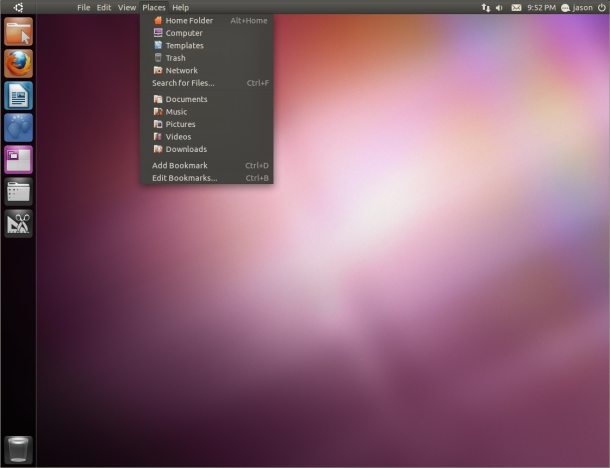Ubuntu 11.04 is ready for release

Ubuntu 11.04 is set to arrive on schedule next week, with an emphasis on OpenStack and cloud automation in the server edition.
On 28 April, Ubuntu steward Canonical will release the server distribution of the open-source operating system, alongside the desktop version, the company said on Thursday. The 11.04 update is also known as Natty Narwhal.

Ubuntu 11.04 is set to arrive on schedule, seen here in its alpha 3 version.
"A big thing that we are interested in, aside from public and private cloud, is we see cloud not only as a deployment issue but as a change in the way applications are developed," Steve George, director of business development at Canonical, told ZDNet UK.
Server edition
The server edition has gained two cloud automation options — Cobbler and MCollective — which seek to add greater automation to the installation and configuration of 11.04-powered servers.
Cobbler is provisioning software that automates the installation and configuring of Linux servers. It supports installs for a variety of hypervisors, including Xen, QEMU, KVM and "some variants of VMware", according to the open-source Cobbler project.
"It's an installation methodology. Imagine a situation where you have 20 web servers out in the cloud, and you get hit by a big release so you need to quadruple the web servers out there," George said. "Rather than trying to launch from a CD or configure by hand, that allows you to do automated [Cobbler] installation."
MCollective is a server automation and orchestration tool that has awareness of Amazon Machine Images (AMI) and metadata. This means automation policies can be set according to the type of AMI a server is mounted on and the regions it can be running in, according to George.
"From our perspective, we want to give Ubuntu developers and users the abilities to use automation and scalability wherever [the servers] are," George said.
A big change in the server update is the addition of the Cactus distribution of OpenStack. The open-source cloud platform has been incorporated alongside Eucalyptus into the Ubuntu Enterprise Cloud (UEC). The move, revealed alongside the release of OpenStack's Bexar version in February, puts a rival to Eucalpytus into the heart of UEC.
George declined to be drawn on whether Canonical may move the core of UEC to OpenStack. "We've added OpenStack essentially as a technology preview," he said. "Generally speaking, our objective is to have a single 'blessed' and maintained technology. For example, on virtualisation that's KVM."
The PowerNap power-saving service has also been updated in Natty Narwhal's server edition to version 2.0. The software is now capable of monitoring user, system and network activity, and factoring in this data when setting policies for server hibernation.
According to figures from web analysis company Builtwith.com, Ubuntu is installed on 2.41 percent of the servers it has tracked, compared with Red Hat Enterprise Linux at 5.58 percent. However, Ubuntu server's usage has been trending up over the past year.
Desktop changes
The desktop version of Natty Narwhal is also set to debut next week, with one major change being the use of the Unity desktop instead of Gnome. However, a number of users have expressed concern at the switch.
In addition, the desktop 11.04 will come with the Firefox 4 web browser and LibreOffice 3.3.2 — the fork from OpenOffice — as standard. It also promises to bring speed and selection improvements to Ubuntu One, which allows people to back up and sync their desktop to the cloud.
The desktop update will also allow users to rate and review applications from the Ubuntu Software Centre and share those ratings on social-networking services via new Gwibber features.
Version 11.10 of Ubuntu, dubbed Oneiric Ocelot, is due to be released in October as part of Canonical's standard six-month release pattern.
Get the latest technology news and analysis, blogs and reviews delivered directly to your inbox with ZDNet UK's newsletters.